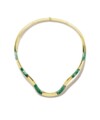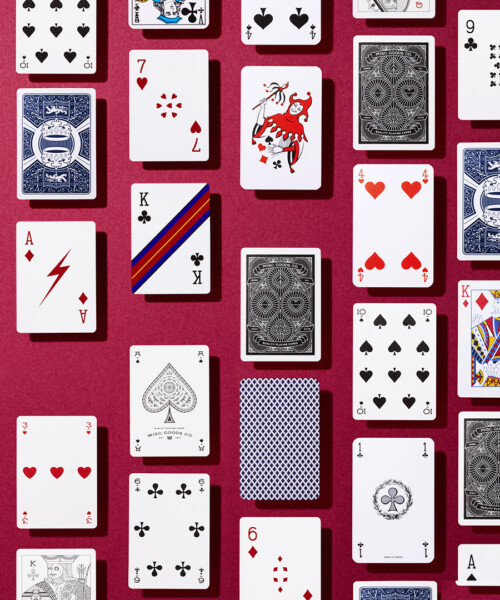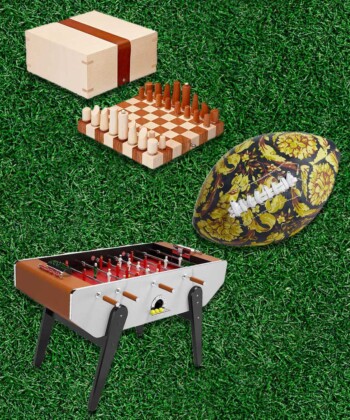How could people with big, important jobs get mixed up with an operation linked to a Vor? I got a few answers after wading through the indictments of the busted crime ring. But high-stakes underground poker existed well before Tokhtakhounov’s gang got their hooks in, and the games definitely didn’t dry up afterward. I wanted to understand what makes these players tick, and so I sought out two insiders for answers.
My first source, who I’ll call Gary, has made it to the final table of the World Series of Poker. He owns an apartment in an upscale zip code. Over lunch at Café Boulud, Gary explains: “A lot of people who have done well in life like to go to the opera or to the ballet. I like to play poker. But I like high-stakes games in beautiful surroundings, where the food is excellent and the liquor is top-shelf. In some of these places there’s a massage room and even somewhere to take a quick nap. The dealers are professional.” It’s not just about the cushy surroundings. When it comes to the bottom line, the high-stakes games are particularly accommodating. “At some of these really high-stakes games you don’t even need to bring money,” Gary says. “Usually they’ll front you $10,000 and take a check if you prefer. If you’re a regular, you can get approved for credit and they’ll put you on ‘the sheet,’ which records how much they’ll lend you.”
For a long time it wasn’t all that hard to find an underground game. The routine went a lot like how I got hooked up in Los Angeles. My second secret source, who I’ll call William, says, “If someone referred you, that was it. There was little if any real security. After a game runner met you and checked you out, you would be told the address and that would be that.”
But in New York City, for a while, the rules changed.
Meet Edwin “Eddie” Ting, a key member of that ring brought down by the feds. Last winter he was sentenced to five months and agreed to a forfeiture of $2 million. According to the indictment, Ting’s job was to set up the new breed of flashy underground games. Prosecutors say Ting, 42, “ran what was likely the largest and most high-profile illegal poker [game] in New York City for years.” (As usual, no clients were identified. Naming them serves no purpose other than to embarrass them and, if the stakes are high enough, to expose them as people who walk into a game with a thick wad of cash.)
Ting’s first location was in the Wall Street area—makes sense!—before he moved his operation to a townhouse he owned in the East 30s. Some games took place at the Plaza Hotel. Because of fear of robbery, many clients played on credit. There were stories that Eddie made more than $4 million a year.
“Most of the games lasted 8 to 12 hours,” says Gary. “Eddie Ting really catered to players. He often had three or four games going. If you were known to him or had been vouched for by someone who was trusted, he would allow you credit of up to $100,000.”
According to William, these high-stakes games could be hard to break into. “They started using the Internet and cell phones,” he says. Even after a fellow player vouched for you, and the game runners met you, “they would check you out on Facebook or one of the other sites, and your photo had better match your name. Finally you’d get a text message where the next game was being held.”
OK, so there are mob guys in the shadows and you may lose a whole lot of money. But it’s fun, right? Um…not necessarily. At some of the high-stakes underground poker tables, bullying takes a real toll. I’m told the regulars always want to take down the “whale,” the newcomer with a lot of money who believes that he or she is as skilled as anyone else at the table, and is way wrong. “The pros and regulars are out to separate the whale from his money as fast as possible,” says Jerry.
William agrees. People see the good behavior at the tables on television poker tournaments, but it’s not that way at all when the game is underground. “There are always quite a few players, especially younger ones, who constantly curse and abuse and make sport of other players,” he says. “The experienced guys use the abuse as a tool so that the new ones make mistakes—they get steamed and don’t use their heads.”
It’s like what Matt Damon says at the beginning of Rounders: “Listen, here’s the thing. If you can’t spot the sucker in the first half hour at the table, then you are the sucker.” You know what? I think that my friendly twice a month game is the best one in town. Guys, I’m all in.








































